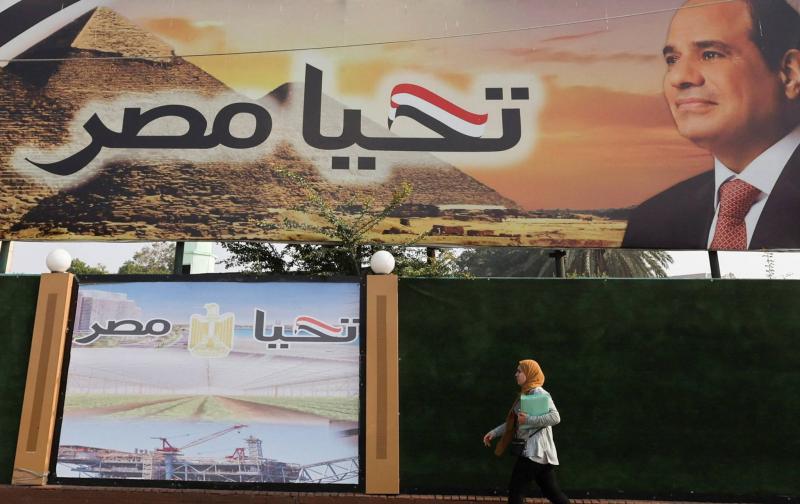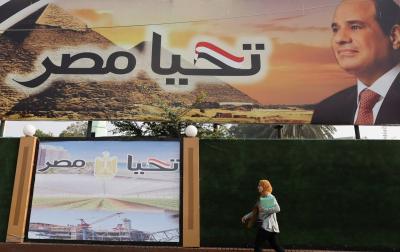The National Election Authority has closed the application period for the 2024 presidential elections, according to the schedule defined for the electoral procedures. The candidates include presidential candidate Abdel Fattah El-Sisi, represented by Counselor Mahmoud Fawzy, the legal representative of the candidate, Dr. Abdel-Sand Yamama, the head of the Wafd Party, Farid Zahran, the president of the Egyptian Social Democratic Party, and Hazem Omar, the head of the Republican People's Party.
Egyptian political writer and analyst Rami Al-Zahdi affirmed that elections in Egypt and any country are a hallmark of democracy and a sign of the strength and stability of the state. In a special interview with "Wardna," he indicated that the democratic process is continuously improving. He added, "It was not possible to shift quickly from non-democracy to complete democracy, and the participation rates compared to registered and previous figures remain a crucial standard for the quality of the electoral process. The clock cannot be turned back, and what happened before with the dominance of one faction or another over the system in Egypt will not happen again, as the people no longer accept that. All possibilities remain, but the will of the ballot box prevails."
Regarding President El-Sisi's continued rule and how that contributes to completing the development journey, Al-Zahdi confirmed that "the developmental experience has not yet been completed, and it is therefore fair for President Abdel Fattah El-Sisi to continue this experience by running again. It remains for the people to decide, but if the president were to withdraw his candidacy, it would inevitably disrupt multiple developmental plans, regardless of differing opinions on the quality or importance of these plans. While some may have varying evaluations of President El-Sisi's achievements, the volume of work and effort exerted is unprecedented in the history of the Egyptian state, both from the president and various state institutions. However, there are certainly negatives and difficult economic conditions that cannot be ignored overall."
**Challenges Facing Egypt**
When asked about the challenges facing Egypt in the next phase, Al-Zahdi stated that "President El-Sisi's approach is to support and reform the tools and mechanisms of state institutions and strengthen their foundations. The more successful the president is in this regard, both in the past and in the future, the better he will be able to face the difficult circumstances surrounding the Egyptian state, whether geographically, politically, or economically."
Regarding those watching Egypt and its economy, Al-Zahdi pointed out that "the current global struggle is economic in essence, and countries with emerging economies are always victims of the conflict among major powers, as is the case with Egypt and many countries in the world. Multiple interests of international parties directly or indirectly target Egypt, putting pressure on the economic side to place Egypt in difficult negotiating positions."
**Opposition in Egypt and the Danger of Terrorist Organizations**
On the subject of Egyptian opposition and its influence, Al-Zahdi emphasized that "the opposition in Egypt is not weak overall, but the performance of some opponents raises suspicion due to their focus on rhetoric rather than objective criticism. We must distinguish well between constructive opposition and mere rhetoric, as well as political opposition (i.e., against the entire regime)."
Al-Zahdi discussed Cairo’s relationship with regional and neighboring countries, noting that "the diplomacy of the Egyptian leadership remains the most influential in Africa and the Arab region regarding interstate relations. Despite the significant foreign impact of the Egyptian president, the institutional state also enjoyed multiplied positive opportunities to enhance Egypt's regional and international role. Certainly, the strength and stability of Egypt externally positively reflect on the internal situation, as evaluating the performance of any president in any country largely depends on their style and effectiveness in managing external state files and their interactions with problems and crises."
He added, "In recent times, President El-Sisi has proven, through his network of external relations, his ability to face challenges and engage in dialogue on all the unresolved local and regional issues. He has made every effort to communicate with all leaders in the region to steer it away from conflicts and unify efforts to combat terrorism."
**Cairo Is Not Afraid of Washington**
In a very sensitive matter concerning Egypt and its security, Al-Zahdi pointed out that "the United States uses the same tools in dealing with important allies like Egypt; traditional pressure tools aim to direct the Egyptian will and management towards American interests. However, Egypt is now stronger, and such tools no longer have the same effect as in the past. Issues of human rights, democracy, the Nile waters, foreign currency, loans, and aid are all impactful but to a lesser degree than before. Certainly, everyone should deal with the United States cautiously. The issue is not that Egypt is afraid of the United States; currently, no one fears anyone. All these matters remain negotiation pressure points for everyone, and the concepts of permanent alliances on all issues or total hostility in all matters have disappeared, as the situation now varies from one file to another."




